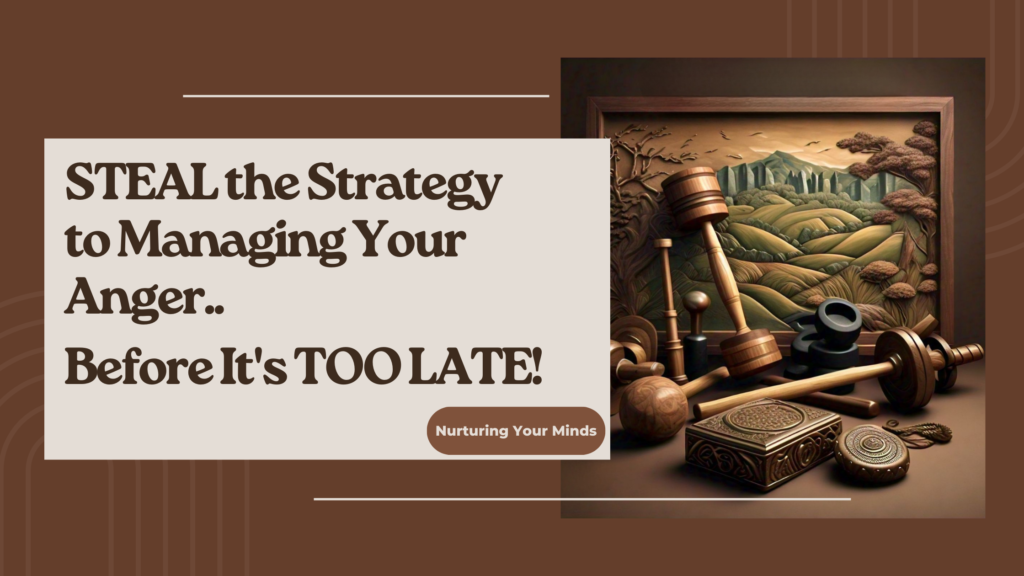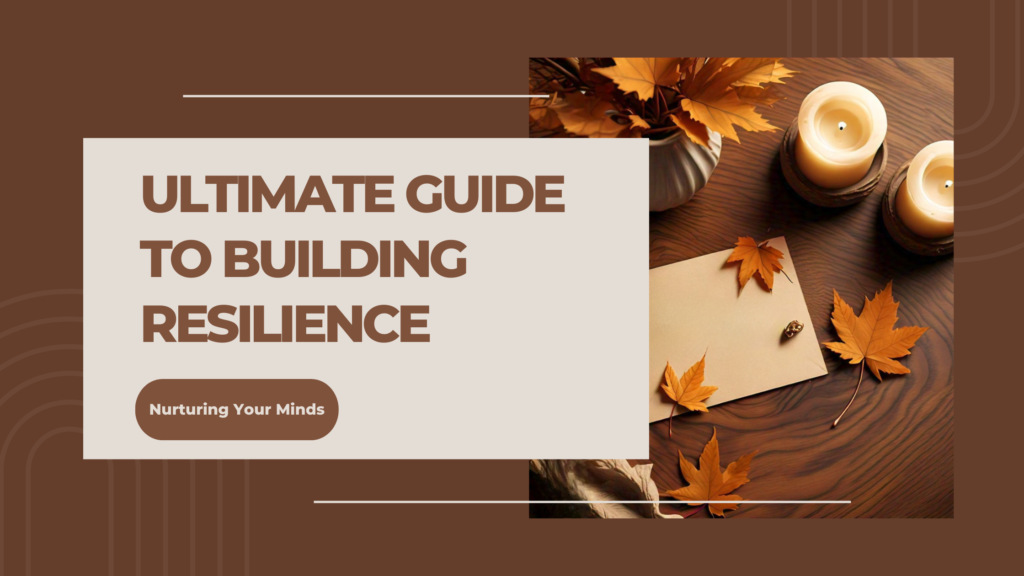Anger is a powerful emotion; one that can either ignite the flames of destruction or fuel the fires of positive change. But what if I told you that mastering this emotion is not about suppression, but transformation? Welcome to the journey of unleashing calm from within.
Introduction: Understanding the Beast Within
Anger; it’s an emotion that everyone experiences, yet few truly understand. Often depicted as a monster hiding within, anger can feel overwhelming, uncontrollable, and destructive. But what if anger isn’t the enemy we think it is? What if, instead of being a force to be feared, anger could be a signal, a guide, and even a catalyst for growth?
In the realm of psychology, anger is recognized as a normal and even healthy emotion when understood and managed properly. It serves as a natural response to perceived threats, injustice, or frustration. However, when mismanaged, anger can cause havoc on our relationships, health, and overall well-being. This article dives deep into the psychological roots of anger, exploring its triggers, manifestations, and, most importantly, how we can transform it into a constructive force.
The Psychology of Anger: Why We Get Mad
To manage anger effectively, we must first understand its origins. Anger is a complex emotional response that arises from a combination of cognitive, emotional, and physiological factors.
-
Cognitive Triggers: The Thoughts That Fuel the Fire
At the heart of anger lies our perception of events. Cognitive psychologists believe that anger is often triggered by our interpretation of a situation rather than the situation itself. When we perceive something as unfair, disrespectful, or obstructive to our goals, our mind reacts with anger.
For example, if someone cuts you off in traffic, your immediate thought might be, “They did that on purpose!” This interpretation triggers feelings of anger. However, if you were to think, “Maybe they didn’t see me”, the emotional response would likely be different. This highlights how our thoughts, beliefs, and assumptions can either fan the flames of anger or weaken them.
-
Emotional Triggers: The Unresolved Emotions Beneath the Surface
Anger often masks other, deeper emotions like fear, hurt, or frustration. When we feel vulnerable, it’s easier to lash out in anger than to confront the underlying pain. For instance, a person who feels insecure in a relationship might express anger when they actually feel fearful of rejection or abandonment.
Psychodynamic theories suggest that unresolved emotional conflicts from the past can resurface as anger in the present. For example, childhood experiences of neglect or abuse may lead to heightened sensitivity to perceived slights in adulthood, causing disproportionate anger reactions.
-
Physiological Responses: The Body’s Role in Anger
Anger isn’t just a mental or emotional experience; it’s also a physical one. When we become angry, our bodies undergo a series of physiological changes. The autonomic nervous system triggers the “fight or flight” response, releasing adrenaline and cortisol (stress hormones), which increase heart rate, blood pressure, and energy levels.
This heightened state of arousal prepares us to confront or escape the perceived threat. However, if this response is activated too frequently or intensely, it can lead to chronic stress, anxiety, and even health problems like hypertension or heart disease.
The Dangers of Unmanaged Anger
Uncontrolled anger can have severe consequences for both mental and physical health. Chronic anger is associated with a range of negative outcomes, including:
- Relationship Issues: Anger can erode trust and intimacy in relationships, leading to conflicts, resentment, and even breakups or divorce.
- Health Problems: Persistent anger can contribute to cardiovascular issues, weakened immune function, and other stress-related ailments.
- Workplace Challenges: Anger can lead to poor decision-making, reduced productivity, and strained relationships with colleagues.
- Legal Troubles: In extreme cases, uncontrolled anger can result in violence, legal issues, or even imprisonment.
Chronic anger can lead you to persistent stress, that can leave you with a stressful and miserable life ahead. If you are experiencing such stress already, get enrolled in my detailed yet therapeutic De-Stress Nurturing Program, where you’ll get all the therapeutic techniques in order to overcome your stress, and manage and cope with it in a more efficient and effective manner.
Anger Management: Techniques to Tame the Beast
While anger is a natural and inevitable emotion, it’s essential to manage it effectively to prevent it from causing harm. The goal of anger management is not to suppress or eliminate anger but to understand it and channel it in healthy, constructive ways.
-
Cognitive-Behavioral Strategies: Reframing Thoughts
Since anger often stems from our thoughts and interpretations, cognitive-behavioral therapy (CBT) offers powerful tools to manage it. CBT teaches individuals to identify and challenge distorted thinking patterns that fuel anger. Here’s how it works:
- Identify Triggers: Start by recognizing the situations, people, or thoughts that trigger your anger. Keeping a journal can help you track these patterns.
- Challenge Assumptions: Once you’ve identified a trigger, ask yourself if your interpretation is accurate. Is there evidence to support your belief, or could there be another explanation?
- Reframe Thoughts: Replace irrational or unhelpful thoughts with more balanced, rational ones. For example, instead of thinking, “They’re trying to ruin my day,” you might reframe it as, “They’re probably having a bad day themselves.”
-
Emotional Awareness: Understanding and Expressing Underlying Feelings
Often, anger is a secondary emotion that masks deeper feelings. Developing emotional awareness can help you identify and address these underlying emotions before they escalate into anger.
- Practice Mindfulness: Mindfulness techniques, such as deep breathing, meditation, or body scanning, can help you stay present and aware of your emotions. By observing your feelings without judgment, you can better understand the root causes of your anger.
- Express Yourself: Once you’ve identified the underlying emotions, express them in a healthy way. This might involve talking to someone you trust, writing in a journal, or engaging in creative activities like art or music.
-
Relaxation Techniques: Calming the Body and Mind
Since anger is closely linked to physiological arousal, relaxation techniques can be highly effective in managing it. These techniques help calm the nervous system, reducing the intensity of the anger response.
- Deep Breathing: Slow, deep breaths can activate the parasympathetic nervous system, which counteracts the fight-or-flight response. Practice inhaling deeply through your nose, holding for a few seconds, and then exhaling slowly through your mouth.
- Progressive Muscle Relaxation: This technique involves tensing and then relaxing different muscle groups in the body, helping to release physical tension associated with anger.
- Visualization: Imagine a peaceful scene, like a beach or a forest, and mentally transport yourself there. Visualization can help shift your focus away from anger and towards a state of calm.
-
Communication Skills: Expressing Anger Constructively
When anger arises in interpersonal situations, effective communication is key to resolving conflicts and maintaining healthy relationships. The goal is to express your feelings in a way that is assertive, but not aggressive.
- Use “I” Statements: Instead of blaming or accusing, focus on expressing your own feelings and needs. For example, say “I feel frustrated when…” instead of “You always…”
- Active Listening: Make an effort to understand the other person’s perspective, even if you disagree. Active listening involves paying full attention, reflecting back what you’ve heard, and validating the other person’s feelings.
- Set Boundaries: If someone else’s behavior is contributing to your anger, it may be necessary to set clear boundaries. Communicate your limits calmly and assertively, without resorting to threats or ultimatums.
-
Physical Activity: Releasing Pent-Up Energy
Physical activity is a natural outlet for the energy generated by anger. Exercise not only helps to release built-up tension but also triggers the release of endorphins, which improve mood and reduce stress.
- Cardiovascular Exercise: Activities like running, swimming, or cycling are great for burning off excess energy and calming the mind.
- Strength Training: Lifting weights or engaging in resistance exercises can be a productive way to channel anger into physical strength.
- Mind-Body Practices: Yoga, tai chi, and other mind-body practices combine physical movement with mindfulness, helping to reduce anger while promoting relaxation and balance.
Anger management workbooks can also be used in order to become more aware of your emotions and triggers, and be able to manage your anger in a more organized and effective manner.
The Role of Therapy in Anger Management
For some individuals, managing anger on their own can be challenging, especially if it has deep psychological roots or is linked to other mental health issues. In such cases, therapy can be a valuable resource.
-
Cognitive-Behavioral Therapy (CBT)
As mentioned earlier, CBT is highly effective in treating anger issues by helping individuals change their thinking patterns. A trained therapist can guide you through the process of identifying and challenging distorted thoughts, developing new coping strategies, and practicing relaxation techniques.
-
Psychodynamic Therapy
Psychodynamic therapy focuses on exploring and resolving unconscious conflicts that contribute to anger. This approach can be particularly beneficial for individuals whose anger is rooted in past trauma, unresolved emotional pain, or complex relational dynamics.
-
Group Therapy
Group therapy provides a supportive environment where individuals can share their experiences with anger and learn from others facing similar challenges. It also offers opportunities to practice communication and conflict-resolution skills in a safe, controlled setting.

Role of Dialectical Behavioral Therapy (DBT) too, can not be ignored when it comes to Anger management. Here is where you will get an organized practice to overcome your anger in a more efficient manner.
The Power of Self-Compassion in Anger Management
One often-overlooked aspect of anger management is the role of self-compassion. When we’re angry, especially at ourselves, it’s easy to fall into a cycle of self-criticism and shame. However, self-compassion can break this cycle by fostering understanding, acceptance, and forgiveness.
-
Practice Self-Kindness
When you feel anger rising, especially towards yourself, take a moment to acknowledge your feelings without judgment. Instead of criticizing yourself for being angry, offer yourself the same kindness and understanding you would extend to a friend.
-
Mindful Awareness
Mindful awareness involves observing your thoughts and emotions without getting caught up in them. By practicing mindfulness, you can recognize the early signs of anger and choose how to respond, rather than reacting impulsively.
-
Recognize Common Humanity
Remember that anger is a universal emotion, everyone experiences it. Recognizing that you’re not alone in your struggles can help reduce feelings of isolation and self-blame.
Catch my step by step FREE guide on practicing Self-Compassion.
Conclusion: Embracing Anger as a Catalyst for Growth
Anger doesn’t have to be an enemy. When understood and managed properly, it can be a powerful catalyst for change, both within ourselves and in our relationships. By exploring the psychological roots of anger, we can learn to navigate this complex emotion with greater awareness, compassion, and control.
Managing anger is not about suppressing or denying it, but about transforming it into a force for positive growth. Whether through cognitive-behavioral strategies, relaxation techniques, or therapy, there are countless ways to harness the energy of anger and use it to fuel a more balanced, fulfilling life.
So the next time you feel that familiar heat rising, remember: within the flames of anger lies the potential for transformation. It’s not about extinguishing the fire but learning to control it, to channel it, and to let it light your way towards a calmer, more centered self.



